|

|
Toxic Positivity:
…when leaders are fair and self-sacrificing, their employees become more loyal and committed to the company.
|
57 |
|

|
Toxic Positivity:
Be human and show your employees that you care about them. Listen and create a culture of open communication. The results will speak for themselves.
|
57 |
|
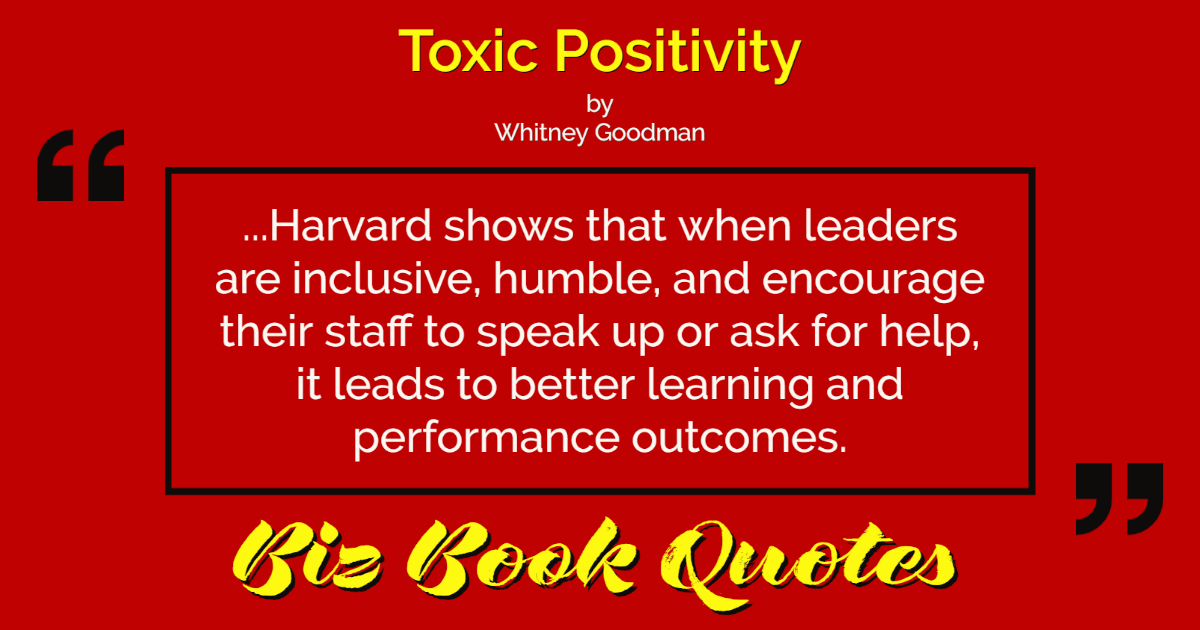
|
Toxic Positivity:
…Harvard shows that when leaders are inclusive, humble, and encourage their staff to speak up or ask for help, it leads to better learning and performance outcomes.
|
57 |
|
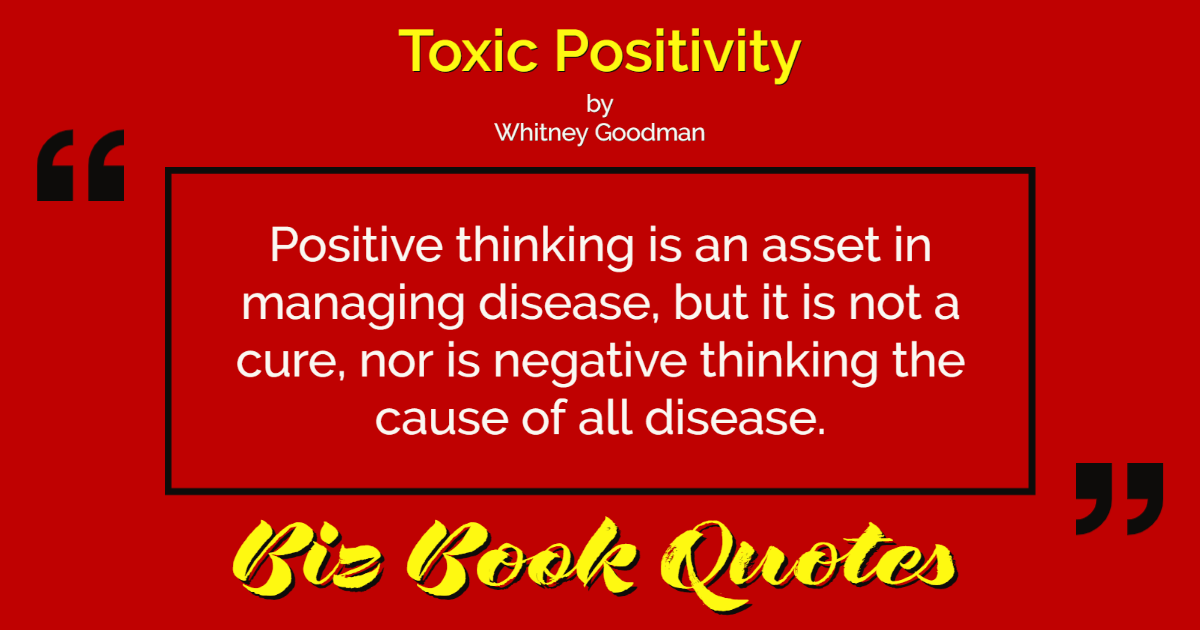
|
Toxic Positivity:
Positive thinking is an asset in managing disease, but it is not a cure, nor is negative thinking the cause of all disease.
|
61 |
|
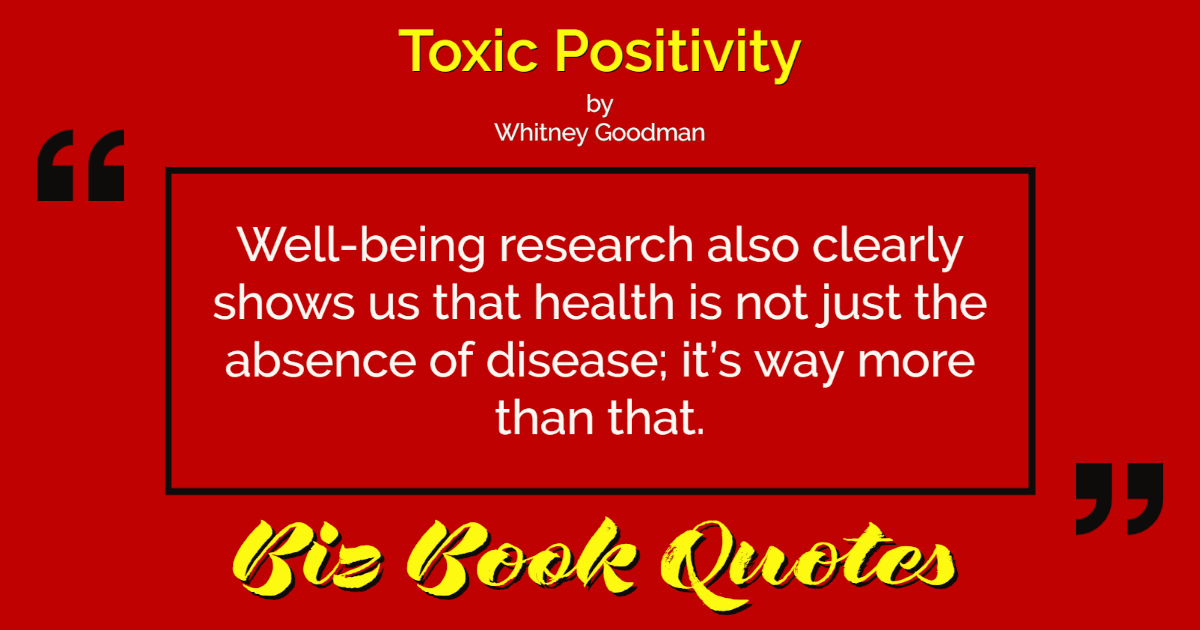
|
Toxic Positivity:
Well-being research also clearly shows us that health is not just the absence of disease; it’s way more than that.
|
65 |
|

|
Toxic Positivity:
Research shows that social shame only hurts and is a counterproductive way of bonding people.
|
68 |
|

|
Toxic Positivity:
When religious communities cultivate a community of acceptance, faith, and understanding, membership can be extremely beneficial.
|
71 |
|

|
Toxic Positivity:
You can be grateful for the lesson and still wish the event didn’t happen.
|
74 |
|
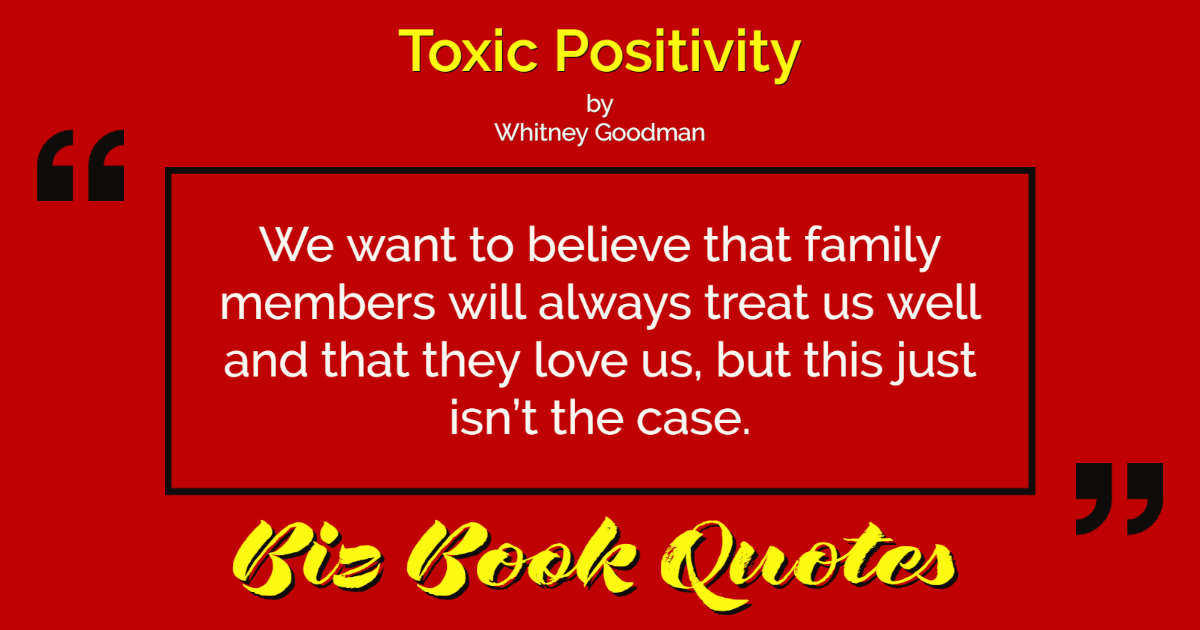
|
Toxic Positivity:
We want to believe that family members will always treat us well and that they love us, but this just isn’t the case.
|
88 |
|
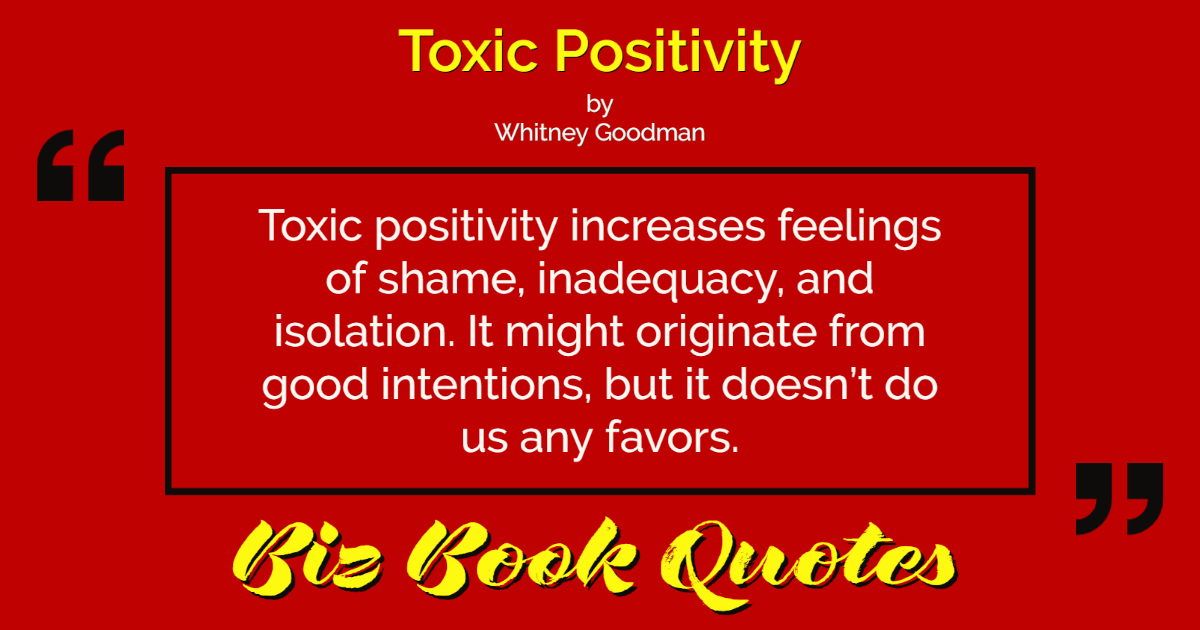
|
Toxic Positivity:
Toxic positivity increases feelings of shame, inadequacy, and isolation. It might originate from good intentions, but it doesn’t do us any favors.
|
111 |











